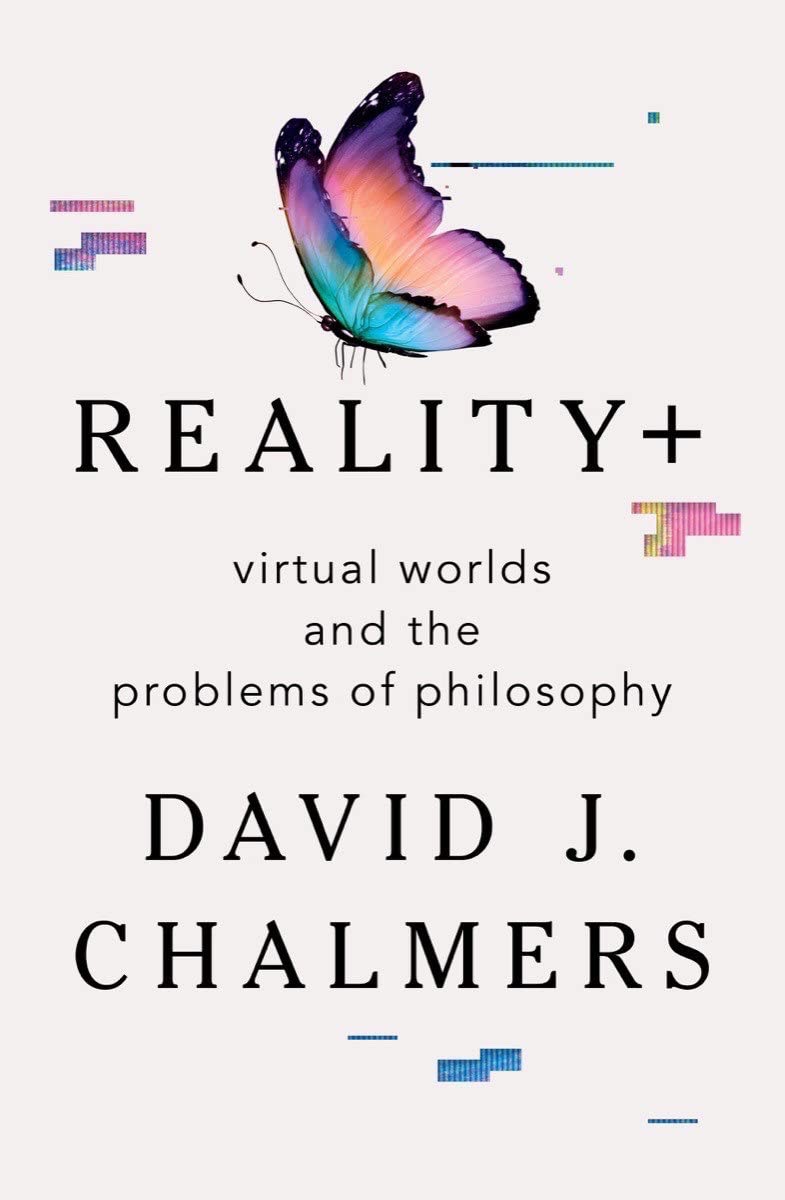
David Chalmers is one of the most famous philosophers of our time. He teaches philosophy and neuroscience at New York University and is best known for formulating “the hard problem of consciousness”.
Examining the workings of consciousness, Chalmers asks how certain physical processes in our brain can cause our subjective experiences. The answer is really very difficult to give.
However, in his new book Reality+, Virtual Worlds, and Problems of Philosophy (Reality+, Virtual Worlds, and Problems of Philosophy, edited by Allen Lane), Chalmers takes the discussion a step further and poses an even more provocative question: indeed, how do you know that you no longer live in some kind of virtual world, like the metaverse?
“I don’t know about you,” the Australian thinker tells me, “but as many hours I spend wandering around the natural world, I spend as many hours in front of my computer. The closest we have today to an online virtual world is Second Life. But when we talk about the metaverse, I think the big change is immersion, the fact that soon we will be able to immerse ourselves in virtual worlds, experiencing them in three dimensions. That’s where Facebook wants to go, which is why it renamed itself Meta. They clearly want to take this digital environment and make it immersive so that we respond to it the same way we respond to the physical world.”

The big change is immersion, the fact that we will soon be able to immerse ourselves in virtual worlds, experiencing them in three dimensions.
My interest started very early. When I was very young, I liked video games and especially adventure games that took place in virtual worlds. The first such game was a text adventure game. The adventure in the Colossal Cave, which I also write about in the book, was a text world. Basically, it allowed you to explore the computer-generated world. It had no graphics, let alone an “immersive experience”. But then the games got better, Space Invaders, Pac-Man appeared. All of these were interactive virtual worlds. And finally, there were multiplayer games like World of Warcraft. “Fortnite”, “Minecraft” and “Second Life” appeared. At the same time, I was introduced to the virtual worlds of science fiction. I have read many books on the subject, but of course the most classic is The Matrix, published in 1999. The Matrix is a wonderful illustration of Plato’s Cave, Descartes’ skepticism, perhaps Berkeley’s idealism. What could be better for a philosopher! When the film came out, I was asked to write something about it on its promo site. The more I thought about it, the more I realized that the Matrix is a form of reality. So I wrote an article called “The Matrix Has a Metaphysics” in which I argued that the film exemplifies the new metaphysics of the digital age, when the world is made up of information. When I finally fixed the idea, I saw that everything is interconnected. You can think of god in this light. Conscience. Meaning of life. Therefore, I decided to write a book in which I would highlight many of the traditional problems of philosophy through the prism of technology.

– The book is a philosophical study of the virtual world and virtual reality, that is, artificial worlds created by computers. Personally, I see this as an exercise in technophilosophy. Technophilosophy is the philosophical reflection on technology and the use of technology to illuminate traditional philosophical questions. On the one hand, I want to reflect on the upcoming virtual reality technologies, virtual and augmented reality glasses, the metaverse, and everything that is coming. At the same time, I want to prove that virtual reality can be a form of authentic reality and that what happens in virtual worlds is real and that you can live a meaningful life in a virtual world.
I also want to look at some traditionally skeptical questions through the lens of virtual reality, such as: what is reality? What knowledge can we have about reality? Is the reality we know a diminished value? Plato considered this scenario. We just see shadows on the cave wall. In essence, we see only a shadow of reality, and not reality itself.
We live in a simulation without even knowing it
“The modern analogy of the Platonic cave,” says David Chalmers, “is a “simulation question.” Can we all now live in a giant computer simulation? And many people say that if it were true, then nothing would be true. My point is that we can actually live in such a gigantic simulation. But even so, the world around us is real, because virtual reality is real reality. And I think this has the potential to shed some light on the ancient questions that philosophers from Plato to Descartes have asked. It is the interactive relationship of philosophy with technology.”
“A lot of people stop when they hear that we might be living in a simulation. They understand your argument but end up feeling confused.
“Look whether we’re in the simulation or not. Of course, there’s a lot we don’t know, at least for now: what happened before the Big Bang? What is happening in a distant universe? I still believe that the question of modeling should be answered with facts. We may never be able to prove it. If we really live in a simulation, perhaps we could find evidence. Simulators could contact us and show us their powers. And maybe that will convince us. But I don’t believe that anything can come along and convince us that we’re not in a simulation. So in that case, I guess, since it would be impossible to prove it, all we could probably do is just go on with our lives. It will not have a terrible effect on our lives. However, this remains a very interesting philosophical question. This is not a scientific question because we cannot reconstruct it. But this is a very interesting philosophical question. As a philosopher, I find the scenario that says we are in a simulation, even if unconsciously, extremely interesting. There is probably something similar to the idea of the existence of God. We may never know if there is a God or not, but it’s very interesting to think about what that means.
“Really, would you buy a plot of land in the metaverse today?”
All of this is still very theoretical. I believe that over time we will have very good immersive technologies. Already virtual reality is not bad, but it is limited, because you have to put on these “helmets”. Someday we will have glasses and we will see everything through them. They can replace our screens. But I think the technology will still need some time. At some point, Apple will release new products. But I think it will be another 15 years before they become really good glasses. For this reason, I would not invest much at this time. I think it’s very scary to invest in real estate on some of these platforms, like Decentraland, because we don’t know which platforms will be successful in 15 years. Probably not what we see now. I think that all participants today will try their luck. Maybe there’s a 1% chance that the whole thing will be worth several million dollars at some point. However, in the future, people will certainly buy places and resources in the metaverse, because we are not able to know how all this will work in the end. There can be infinite spaces, each with its own planet. So you will not pay for space, but for advertising so that people can learn about your product and get to know your planet. Perhaps stories in the metaverse will be a continuation of advertising in the digital world. However, I don’t think it will matter much in the next five years. It will be in the experimental phase. But in 15 years, I think it will probably be something very big.
– Immersion in virtual reality comes with the risk of neglecting the physical world, do you share this?
– There are both utopian and dystopian visions. Many see virtual reality as an opportunity for new experiences, even considering uploading their minds to the cloud in anticipation of immortality. Others see a dystopia stemming from the power of multinational corporations that exploit and manipulate us. We won’t have any privacy there. There will be inequality and only the rich will have access to better virtual worlds. It is possible that we neglect the natural world, but in many ways it depends on us. I think it would be insane to use virtual reality as an alibi for neglecting the physical world. It’s like colonizing Mars. It would be great to go to Mars, but that should not be an excuse for neglecting the planet. I don’t think we should choose one or the other. Fortunately, it is possible to take care of physical reality and be in virtual reality at the same time. But seeing how badly we treat the environment today, it’s easy to fall into pessimism.
Source: Kathimerini
James Springer is a renowned author and opinion writer, known for his bold and thought-provoking articles on a wide range of topics. He currently works as a writer at 247 news reel, where he uses his unique voice and sharp wit to offer fresh perspectives on current events. His articles are widely read and shared and has earned him a reputation as a talented and insightful writer.